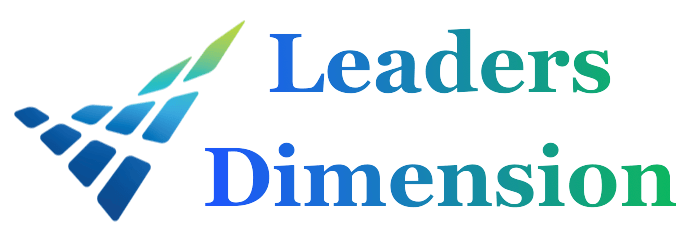The Overlooked Power of Self-Advocacy in Successful Collaboration
Self-advocacy is an essential skill that can have a profound impact on both personal and professional success. By understanding and applying self-advocacy in your life, you can achieve greater self-confidence, improve your communication skills, and become a more effective collaborator.

When we think about the qualities that make someone a successful collaborator, attributes like good communication skills, transparency, and reliability are often at the forefront of our minds. While these traits are undeniably important, one crucial characteristic that is frequently overlooked is self-advocacy. Understanding and applying self-advocacy in your personal and professional life can not only help you achieve your goals but also make you a more effective and valuable collaborator.
What It Means To Be A Self-Advocate
Self-advocacy is fundamentally about being willing and able to speak up for your own interests, needs, and rights. Rather than passively allowing circumstances to dictate the course of your life, self-advocacy involves taking a proactive role in ensuring that your actions and decisions are aligned with your personal goals and values.
Carnegie Mellon University defines self-advocacy as occurring “any time people speak or act on their own behalf to improve their quality of life, effect personal change, or correct inequalities.” To effectively advocate for yourself, you must first understand your own needs, be aware of the resources available to meet those needs, and effectively communicate your needs to those who can assist you.
These principles are so vital that organizations like the Boys & Girls Clubs of America have integrated self-advocacy skills into their programs, recognizing them as a critical capability at all stages of life. Teaching self-advocacy to young people ensures they are better equipped to navigate challenges and stand up for their rights as they grow older.
By becoming a self-advocate, you gain the ability to manage situations that might otherwise become unfavorable or unfair. For those who may not be immediately comfortable with the idea of speaking out, self-advocacy can be developed through various activities, such as practicing positive self-talk, tracking personal accomplishments, honing new skills, and seeking help when needed. These small steps can gradually build your confidence and capability in advocating for yourself.
Why Self-Advocacy Matters
The impact of self-advocacy extends beyond simply standing up for your needs; it can have a transformative effect on various aspects of your life, particularly in the workplace. Empowering yourself to advocate for your needs can lead to increased self-confidence and self-esteem. This empowerment naturally enhances your openness and transparency, improving your communication skills as you learn to clearly articulate what you need and expect from others.
As you engage in self-advocacy, you also become more self-aware, particularly regarding the challenges you face and the feedback you receive from others. This heightened self-awareness allows you to better identify and address your own weaknesses, leading to personal growth and development. Moreover, self-advocacy strengthens your problem-solving capabilities, enabling you to effectively address both your own needs and those of others in collaborative settings.
Despite the well-documented benefits of self-advocacy, many people, particularly women, struggle with it. A study by Indeed found that only 43% of women feel they advocate the right amount for themselves. The study identified anxiety, fear of retribution, and fear of being perceived as “aggressive” as the top reasons for this reluctance. Additionally, many women and people of color believe they are more likely to be viewed negatively when they self-advocate compared to men and white people.
This suggests the need for a cultural shift that empowers more women and people of color to feel comfortable advocating for their own interests and needs. The benefits of self-advocacy to individuals are undeniable, and these benefits become even more pronounced in collaborative environments.
Applying Self-Advocacy To Collaborative Efforts
Self-advocacy plays a pivotal role in successful collaboration. As Tanita Allen, author of the book We Exist, explained in a recent conversation, “We all need to be self-advocates because our society has systemic issues that can introduce a wide range of challenges, especially for marginalized communities. When groups of people who are self-advocates come together and work toward a unified cause, it enables them to achieve change on a level that wouldn’t be possible on their own.”
Allen’s insights highlight the powerful outcomes that can be achieved when individuals who are strong self-advocates collaborate. Whether in political movements or business environments, teams of self-advocates bring with them the tenacity and drive needed to achieve meaningful and lasting change. These experiences inspired Allen to write We Exist, a book that delves into the intricacies of self-advocacy and community empowerment.
In collaborative efforts, self-advocacy ensures that each team member’s voice is heard and their contributions are valued. When individuals advocate for themselves, they are more likely to contribute unique perspectives and ideas that can drive innovation and creativity within the group. Additionally, self-advocates are often more resilient and adaptable, as they are accustomed to overcoming challenges and advocating for the resources and support they need to succeed.
Cultivating a Culture of Self-Advocacy
Creating a culture that encourages self-advocacy requires intentional effort from leaders and team members alike. Leaders can foster this culture by providing opportunities for individuals to voice their needs and concerns, offering training and resources to develop self-advocacy skills, and actively addressing any systemic barriers that may prevent individuals from advocating for themselves.
Team members can support each other by encouraging open communication, respecting diverse perspectives, and providing constructive feedback that empowers others to advocate for their needs. By working together to cultivate a culture of self-advocacy, teams can create an environment where everyone feels empowered to contribute their best work.
Conclusion
Self-advocacy is an essential skill that can have a profound impact on both personal and professional success. By understanding and applying self-advocacy in your life, you can achieve greater self-confidence, improve your communication skills, and become a more effective collaborator.
As more individuals embrace self-advocacy, we can begin to see a cultural shift that empowers everyone, regardless of gender or race, to advocate for their needs and contribute meaningfully to collaborative efforts. Ultimately, self-advocacy is not just about standing up for yourself—it’s about creating a world where everyone’s voice is heard and valued.

